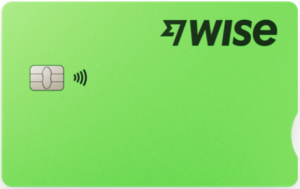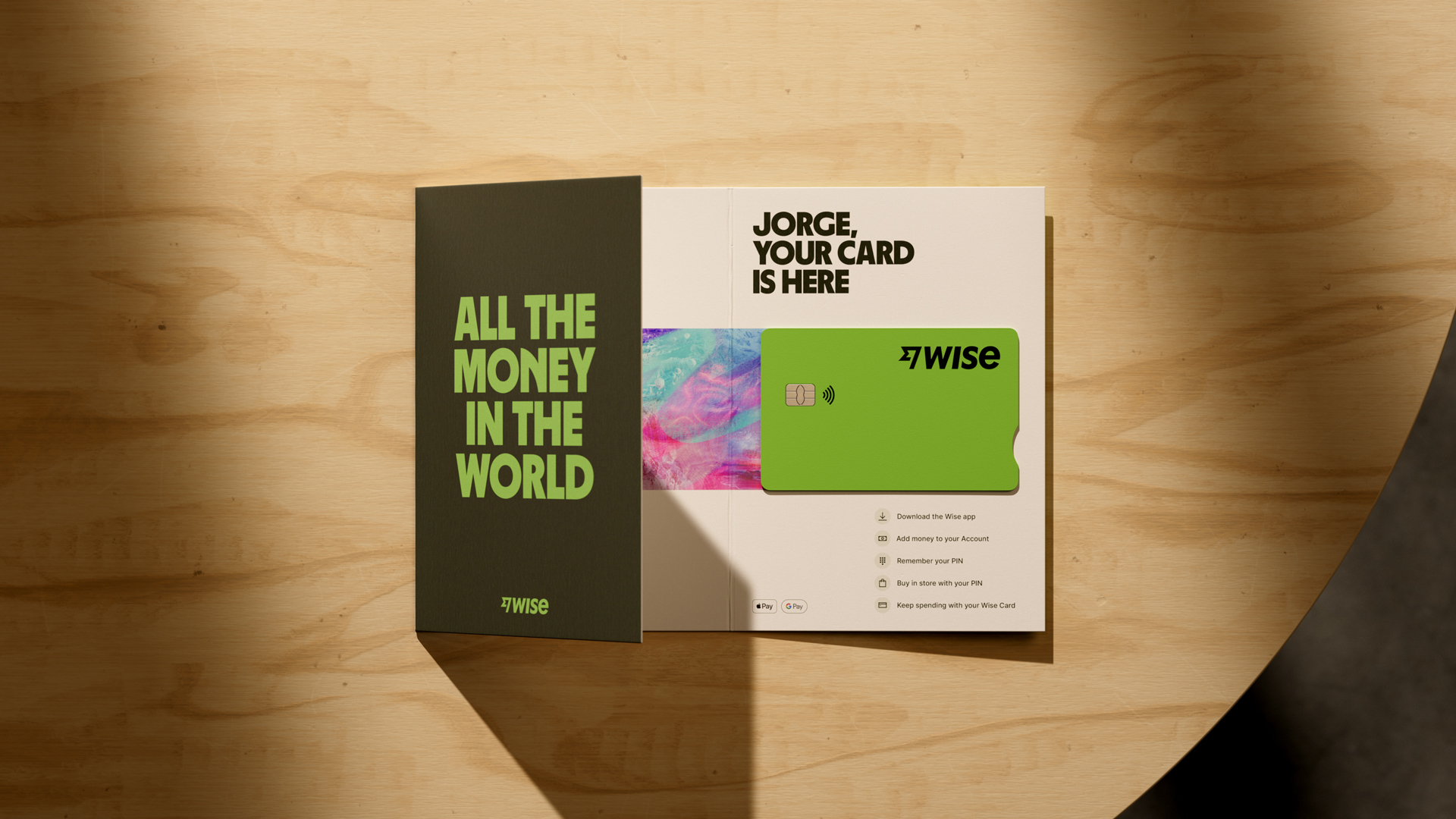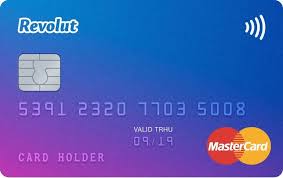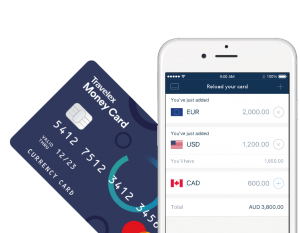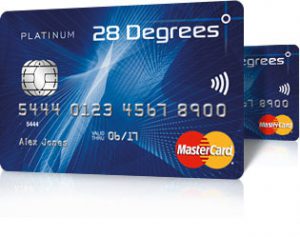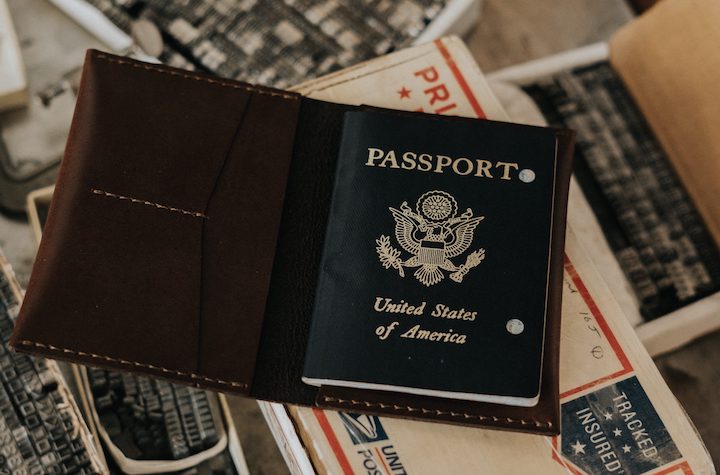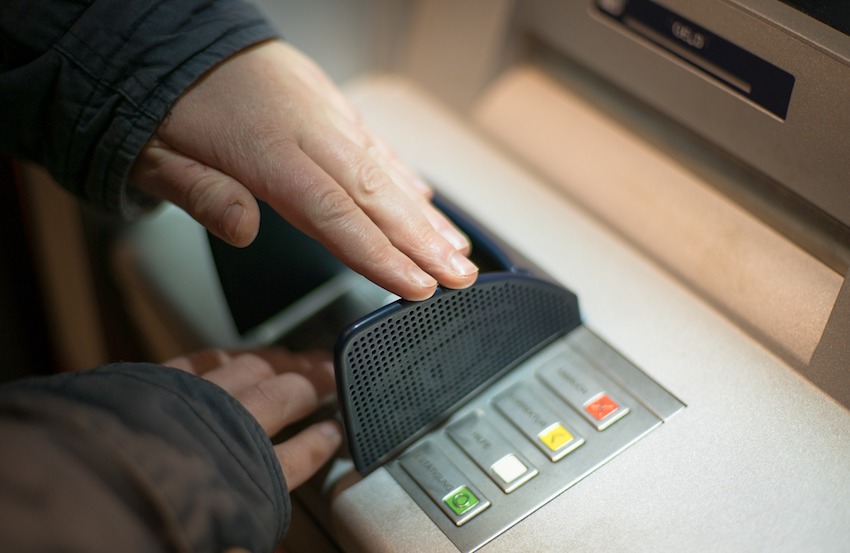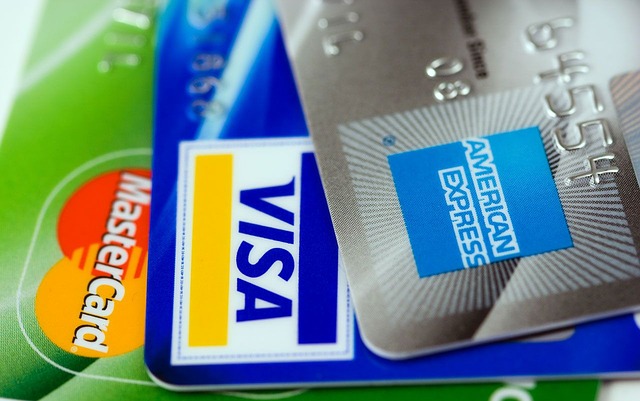The 5 Best Travel Cards for Europe 2025
Europe is one of the top destinations for Australians heading on holiday - with year round attractions depending on whether you’re looking for a beach break, ski trip, or simply some time to eat, drink and soak up the culture. No matter what you’re off to Europe for, you’ll need to pay for things while you’re there. This guide walks through our picks of 5 of the best travel cards available for Australians heading to Europe, with a look at their features, benefits and drawbacks.
5 best travel cards to use in Europe
- Wise - debit card
- Revolut - debit card
- Travelex - prepaid card
- 28 Degrees Platinum - credit card
- Bankwest Zero Platinum Mastercard - credit card
Wise is our pick for travel debit card for Europe
With this card:
- Convert Aussie dollars to Euros at the mid-market exchange rate
- It's very easy to set up and order
- You can receive foreign currency into a multi-currency account linked to the card
- You can transfer money to a bank account overseas
It's not all good news though
- There is a 1.75% ATM withdrawal fee when you withdraw over $350 during a month
- It takes 7-14 days for delivery
Click here to see the full list of cards and how Wise compares
What are different types of travel cards?
It can be tricky working out which is the best travel card to use in Europe.
The fact is, the best one for you will really depend on what you need from the card you're using. We've listed what we think are three of the best travel money cards you can use while you're in Europe.
They can be either prepaid, debit or credit cards designed specially for overseas use. You can use travel cards to make purchases online, in stores and to withdraw money at ATMs. There are 3 popular types:
Let's have a look at each one.
Travel Debit Cards
Debit Cards offer the convenience of a credit card, but work differently. They draw money directly from your bank account when you make a purchase. It's designed for everyday money transactions and means that you're not accumulating debt.
If you have spending issues, it's a better option to use your debit card whenever possible. This is because it will prevent you from falling into credit card debt. And for daily purchases, we think a debit card can help you stick to your travel budget, because you can't overdraw money from your account.
Generally, we recommend having the combination of a travel debit and travel credit card for safety, flexibility and convenience on your trip.
Wise - travel debit card for Europe
The Wise card offers a flexible way to pay and make withdrawals with most European currencies covered for holding and exchange. You’ll be able to order your card for a low one time fee, with no ongoing costs to worry about.
Whether you’re spending in euros, British pounds, or any of the other 40+ currencies supported, you’ll get the mid-market exchange rate when you switch from AUD, with low fees from 0.43%. Exchange your AUD to the currency or currencies you need in advance, or just let the card handle the conversion at the point of payment for extra convenience.
- No annual fee, hidden transaction fees, exchange rate markups
- No minimum balance requirements
- Allows you to make payments and withdrawals wherever you are in the world in over 40 currencies
- Local bank account details in Australia (AUD), the UK (GBP), the USA (USD), Europe (EUR) and New Zealand (NZD)
- It takes 7-14 business days to receive the card
- Can't always access local technical support depending on where you are
- Free cash withdrawals limited to under $350 every 30 days
- Only currently available in the US, UK, Europe, Australia and New Zealand
Revolut - prepaid travel card for Europe
The Revolut prepaid travel card lets you pick the account and card type that suits your personal needs and preferences. Go for a Standard plan with no monthly fee to pay, or upgrade to one of the higher tier account options with ongoing costs, which unlock extra features and benefits. Whichever card you pick you can spend in 150+ countries and get some no fee ATM withdrawals and currency conversion which uses the mid-market rate. Fair usage fees apply once you’ve used your account plan no-fee limit for a particular transaction type.
Click here to see the full list of cards and how Revolut compares
- Very easy to use app
- Free to set up
- No hidden fees or exchange rate mark-ups (except on weekends)
- You can use it to transfer money to a bank account overseas
- Additional fees for using the card on a weekend
- 2% ATM fee once you withdraw more than $350 in any 30 day period
- 3-4 business days before you receive your card
- Ongoing subscription fee for Premium and Metal cards
Prepaid Travel Cards
For prepaid cards, you're able to load the card with a set amount of money in the currencies you need. Ideally you do this before your trip, but often you can reload them as well.
Most prepaid travel cards allow for multiple currencies to be loaded onto the card. So it's important to know what currency you'll be using on your travels. Airlines also offer prepaid cards so the money you spend can earn you reward points.
Depending on where you're visiting, there might be better local alternatives available. Check out our lists of the best prepaid cards available in the USA and UK.
With prepaid travel cards you need to be careful. They can have numerous fees and charges, which can make it more expensive than other options. But if you're organised and travelling to multiple cities a prepaid travel card is a good option.
Travelex - prepaid travel card for Europe
The Travelex travel money card can be a convenient pick if you’re in a hurry as you can walk into a Travelex store and get one in just a few minutes. Just take along a suitable ID document, to get your card and account before you travel. You’ll be able to hold and exchange 10 major currencies, which covers euros and pounds. Bear in mind that exchange rates may include a markup - and other European currencies aren’t supported for holding or exchange so while you’ll be able to spend in a selection of other currencies, you won’t be able to buy them in advance to lock in a rate and set your travel budget.
Click here to see the full list of cards and how Travelex compares
- Supports 10 major global currencies for holding and exchange
- Get your card online or in person for extra convenience
- No Travelex fee to spend or make an ATM withdrawal
- Some fee free ways to top up your card balance are available
- Exchange rates are likely to include a markup on the mid-market rate
- Fees may apply when you buy or top up your card
- Relatively low number of supported currencies
- Account closure and inactivity fees may apply
Travel Credit Cards
Credit cards have obviously been around for a long time. But now there are specialised travel credit cards. Generally, these cards give you longer to pay back what you've spent but the interest rates after this time can be quite high.
The main advantage with credit cards are the reward points you get in return for your customer loyalty when you spend. But it only works if you pay off the balance in full each month.
Credit cards are great to use for car hire, restaurants and accommodation - larger expenses that are easier for you to pay back over time. Some services only take credit cards to hold purchases so they can definitely be handy while you're travelling.
28 Degrees - travel credit card for Europe
With this card:
- There are no annual fees
- No overseas purchase fee or currency conversion fee
- You get 55 days interest free on purchases
- Access to free 24/7 concierge service
- Emergency card replacement worldwide
The 28 Degrees Platinum Mastercard has additional benefits including shoppers and repayments benefits cover.
- Can have 9 additional cardholders
- No overseas purchase fee, or currency conversion fee
- No foreign transaction fee
- Free Replacement Card
- High interest rates after the initial 55 days
- Minimum credit limit is $6,000
- No introductory offers or rewards
Bankwest Zero Platinum Mastercard - travel credit card for Europe
The Bankwest Zero Platinum Mastercard has no annual fee to pay, and no foreign transaction fee either. That can make it a good option if you’d prefer to spend using a credit card and then pay off your travel bills later. There’s even a buy now, pay later which may let you split the costs of some eligible purchases into 4 payments with no extra interest to pay. Bear in mind that some fees and costs do apply to this card, particularly if you want to make ATM withdrawals, or if you’d prefer not to pay your bill off in full every month.

- No annual fee to pay
- No Bankwest foreign transaction fee
- Some complimentary travel insurance available for card holders
- Can be used as a payment guarantee, such as when renting a car or checking into a hotel
- Interest applies if you don’t pay your bill in full every period
- Cash advance fee of 3%, and a higher rate of interest compared to card spending
- 6,000 AUD minimum credit limit
- Subject to eligibility requirements and credit checks
What is a travel money card?
A travel money card is a card you can use for secure and convenient payments and withdrawals overseas.
You can use a travel money card to tap and pay in stores and restaurants, with a wallet like Apple Pay, or to make ATM withdrawals so you'll always have a bit of cash in your pocket when you travel.
Although there are lots of different travel money cards on the market, all of which are unique, one similarity you'll spot is that the features and fees have always been optimised for international use. That might mean you get a better exchange rate compared to using your normal card overseas, or that you run into fewer fees for common international transactions like ATM withdrawals.
Travel money cards may also offer distinct benefits when it comes to security. If your travel card is separate to your Australian dollar primary account, this means they're not linked and offers a more secure option for travelling abroad.
Travel money vs prepaid card vs travel credit card
It's helpful to know that you'll be able to pick from several different types of travel cards, depending on your priorities and preferences. Travel cards commonly include:
- Travel debit cards
- Travel prepaid cards
- Travel credit cards
They all have distinct benefits when you head off to Europe or elsewhere in the world, but they do work a bit differently.
Travel debit and prepaid cards are usually linked to an online account, and may come from specialist digital providers - like the Wise card. These cards are usually flexible and cheap to use. You'll be able to manage your account and card through an app, although you can also often add money in person by visiting a branch - we've picked out the Travelex travel card as popular prepaid card with a branch network in Australia, for example.
Travel credit cards are different and may suit different customer needs. As with any other credit card, you may need to pay an annual fee or interest and penalties depending on how you manage your account - but you could also earn extra rewards when spending in a foreign currency, or travel benefits like free insurance for example. Generally using a travel credit card can be more expensive compared to a debit or prepaid card - but it does let you spread out the costs of your travel across several months if you'd like to and don't mind paying interest to do so.
What is a prepaid travel money card best for?
Let's take a look at the advantages of using a prepaid travel money card for travellers going to visit Europe. While each travel card is a little different, you'll usually find some or all of the following benefits:
- Hold and exchange foreign currencies - allowing you to lock in exchange rates and set a travel budget before you leave
- Convenient for spending in person and through mobile wallets like Apple Pay, as well as for cash withdrawals
- You may find you get a better exchange rate compared to your bank - and you'll usually be able to avoid any foreign transaction fee, too
- Travel cards can be more secure. If they are not linked to your everyday GBP account, they can be a safer option. Additionally, because you can make ATM withdrawals when needed, you can avoid carrying too much cash at once
Overall, travel cards offer flexible and low cost ways to avoid bank foreign transaction and international ATM fees, while accessing decent exchange rates.
How to choose the best travel card for Europe
We've picked out 5 great travel cards available in Australia - but there are also more options available, which can make choosing a daunting task. Some things to consider when picking a travel card for Europe include:
- What exchange rates does the card use? Choosing one with the mid-market rate or as close as possible to it is usually a smart plan
- What fees are unavoidable? For example, ATM charges or top up fees for your preferred top up methods
- Does the card support a good range of currencies? Getting a card which allows you to hold and spend in EUR can give you the most flexibility, but it's also a good idea to pick a card with lots of currency options, so you can use it again in future, too
- Are there any other charges? Check in particular for foreign transaction fees, local ATM withdrawal fees, inactivity fees and account close fees
Ultimately the right card for you will depend on your specific needs and preferences. If you're looking for a low cost card with the mid-market rate, which you can use in 150+ countries, the Wise card may be a good fit.
What makes a good travel card for Europe
The best travel debit card for Europe really depends on your personal preferences and how you like to manage your money.
Overall, it pays to look for a card which lets you minimise fees and access favourable exchange rates - ideally the mid-market rate. While currency exchange rates do change all the time, the mid-market rate is a good benchmark to use as it's the one available to banks when trading on wholesale markets. Getting this rate, with transparent conversion fees, makes it easier to compare costs and see exactly what you're paying when you spend in Euro.
Other features and benefits to look out for include low ATM withdrawal fees, complimentary travel insurance, airport lounge access or emergency cash if your card is stolen. It's also important to look into the security features of any travel card you might pick for Europe. Look for a card which uses 2 factor authentication when accessing the account app, which allows you to set instant transaction notifications, and which has easy ways to freeze, unfreeze and cancel your card with your phone.
For Europe in particular, choosing a card which offers contactless payments and which is compatible with mobile wallets like Apple Pay could be a good plan. Depending on the country you are going to visit in Europe, card payments can be quite popular - so having a card which lets you tap and pay easily can speed things up and make it more convenient during your trip.
FAQ - 5 best travel cards for Europe
Which card is better to use in Europe?
The best card for Europe will depend on exactly where you’re heading and how you like to manage your money. Using a travel debit card or travel prepaid card like Wise travel card or Revolut can be a handy way to hold, exchange, spend and manage your money across a selection of major European currencies, offering flexibility and low costs.
What's the best prepaid card to use in Europe?
There’s no single best prepaid card for Europe, but picking one which covers all the currencies you’ll need is essential. Bear in mind that there are many other European currencies aside from pounds and euros - choose a card which has a broad range of supported currencies for convenience. Wise supports 40+ currencies, while Revolut has 25+ currencies, making either of these a good place to start your research.
Can I use my Australian debit card in Europe?
You can use your Australian debit card in Europe anywhere the network - often Visa or Mastercard - is supported. Bear in mind that you may need to tell your bank you’re planning to travel, to avoid your card being frozen for security reasons. Double check if your debit card has a foreign transaction fee to pay - if it does, using a specialist travel card can mean you pay less overall when you spend in foreign currencies.
What is the best way to pay when travelling in Europe?
Having a selection of ways to pay whenever you travel is a good idea. You may choose to carry some local cash, some AUD for exchange, your Australian debit card and a specialist travel credit or debit card, for example. This should mean you’re covered - even if you find a merchant which can’t accept your preferred payment method.
Which debit card has no fees in Europe?
A travel card from a provider like Wise, Revolut or Travelex lets you hold a foreign currency balance and spend it with no extra fee. Each card has its own features and fees so you’ll need to compare a few to decide which is best for your specific needs.
Is Visa or Mastercard better for Europe?
Both Visa and Mastercard are very widely accepted in Europe. Look out for the symbol displayed on ATMs or at payment terminals in stores.
Need to know more about travelling to Europe?


